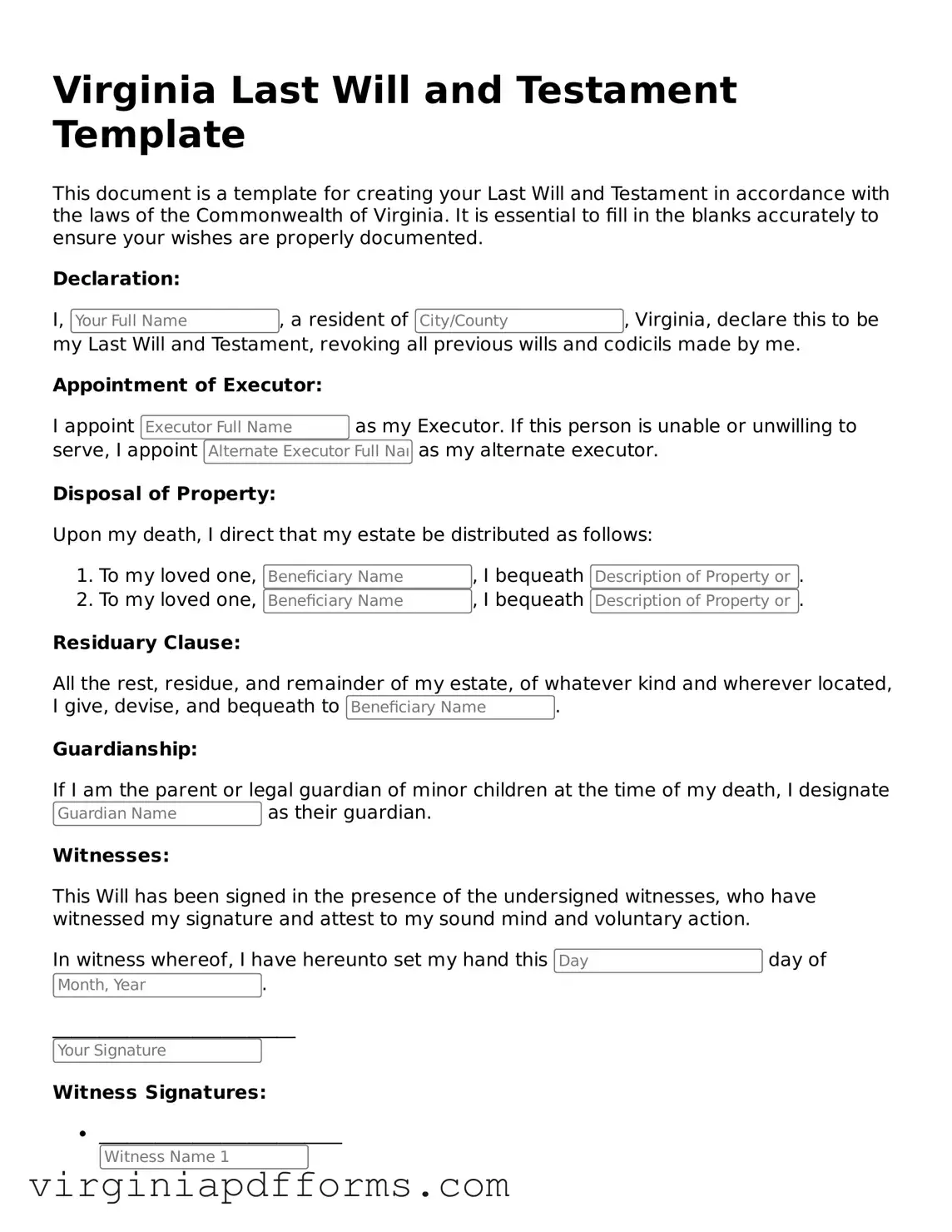Attorney-Approved Virginia Last Will and Testament Document
A Virginia Last Will and Testament form is a legal document that outlines an individual's wishes regarding the distribution of their assets after death. This form serves to ensure that a person's estate is managed according to their desires, providing clarity and direction for loved ones. By utilizing this form, individuals can avoid potential disputes and ensure their legacy is honored.
Access My Document Now

Attorney-Approved Virginia Last Will and Testament Document
Access My Document Now

Access My Document Now
or
Free Last Will and Testament File
Need this form wrapped up fast?
Finish Last Will and Testament online — edit, save, download without effort.